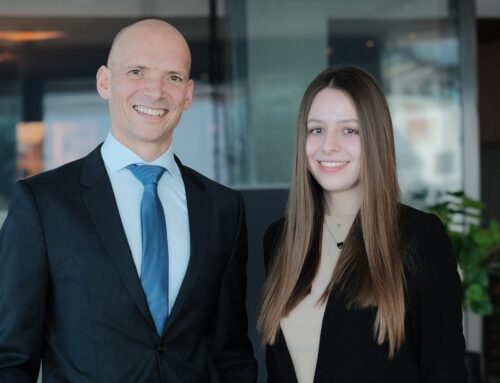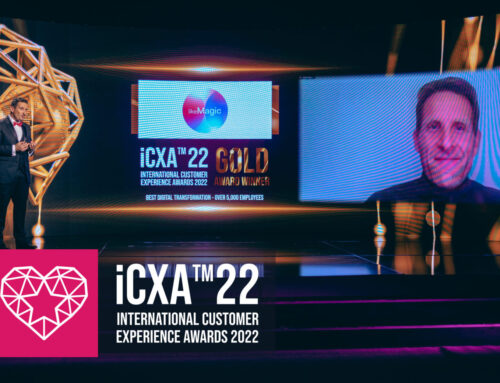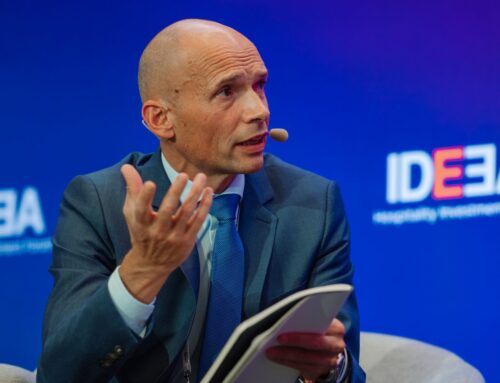EY presents this year’s edition of Global hospitality insights. It offers our top 10 thoughts for 2017.
In Brexit’s wake: Hospitality and leisure update
Assuming the UK does exit the EU, timing and planning are critical considerations for hospitality executives. However, there are still many positive signs for the industry.
For example, the UK remains one of the most visited countries in the world, with London ranking as the second-most visited tourist destination globally. Nevertheless, Brexit will add further complexity to both the short and medium-term outlook for the hospitality and leisure sector.
The consumer confidence outlook, which is critical to the economy, appears challenging. Currency depreciation is pushing up inflation, which when combined with the low wage growth of recent years is forecast to squeeze real household incomes.
An economically sensitive hospitality and leisure sector is likely to be at the forefront of any adjustment to consumer spending.
The evolution of analytics in the global hospitality industry
The use of analytics often has a direct impact on revenue for hotel management companies. In the revenue management department, companies can now leverage data from a multitude of sources, including online search behavior, air traffic, competitor sales and future reservations to better forecast demand and optimize pricing.
As the hospitality industry captures enormous volumes of diverse data sets, the effective use of analytics is dramatically changing how hospitality businesses are run. Embracing data analytics will not only enhance the guest experience, but also drive top- and bottom-line results for hotel owners and management companies. In addition, those dealmakers who leverage data analytics in their diligence are likely to benefit from enhanced returns.
Record Chinese investment in global lodging markets
Chinese investors increased their overseas activity in 2016 due to the limited performance in domestic hospitality markets and the higher property yields and stable investment environments abroad. By investing abroad, investors are able to hedge against China’s continuing currency devaluation.
Lacking investment opportunities at home and desiring to build global brand recognition for their hotel assets, Chinese investors are likely to invest more in global hotel markets in 2017. A growing appetite for scale should continue to drive major players toward platform level investments, particularly in major gateway markets.
With Brexit presenting new opportunities and insurance regulations allowing Chinese insurers to allocate substantially more capital overseas, Chinese investors are expected to remain active cross-border hotel investors.
Real estate and hospitality disrupters
Today, the interlocking forces of technology, demographics and globalization are disrupting organizations of all types across all industries. The real estate industry, and the hospitality sector specifically, is no exception.
What’s important to keep in mind is that while disruption threatens traditional business models and value chains, there are also significant opportunities in the changes taking place.
The unique dynamics of real estate make the challenge of disruption particularly steep. The planning, delivery and management of real property requires a long-term vision, which is difficult to establish in a rapidly changing world. In the hospitality sector, leaders must try to better anticipate the future and consciously adopt new ideas, with success depending on the ability to proactively shape and drive future demand.
Cybersecurity: Preparing and responding to a breach
The average security breach costs hotel companies an estimated US$4.0m, and such breaches remain a serious threat to the global hospitality sector. Companies must be prepared to quickly detect an attack, correctly diagnose the causes and mitigate financial and reputational damage.
Confronting a security breach requires seamless integration of people, processes and tools. As hospitality companies gather facts and their unfolding investigation reveals more information, their initial conclusions about a cyber attack, such as what was accessed or stolen, may prove wrong. Immediately after a data breach, they must quickly diagnose the problem.
Robotic process automation: Advancements in technology
Robotic process automation (RPA) is an off-the-shelf advanced software technology that businesses can acquire from select vendors and set up for their own particular needs. As a “virtual employee,” a robot or “bot” accesses and manipulates other computer applications through their user interfaces, which enables it to automate high-volume, repetitive tasks with fewer errors.
Given the many benefits of RPA, adoption is expected by more hotel companies. However companies should bear in mind that while RPA could possibly eliminate some jobs where the tasks performed are routine, they will need to retain the key people who are experienced in running accounting, HR and other operations so they can apply that experience in managing RPA.
RPA offers companies the opportunity to make their business processes more efficient, reliable and cost-effective. But to take full advantage of that opportunity, they must clearly understand how to plan for and adopt the technology.
Sharing economy 2.0: The next chapter
In 2016, increasing government involvement subjected peer-to-peer players to new taxes and regulations similar to those imposed on traditional hotels. These included building accessibility and safety rules, transient occupancy taxes and headline-making length-of-stay regulations.
In response to the growth in peer-to-peer lodging, traditional hotels are adopting different strategies to appeal to travelers attracted to the ease of online booking and the immersive travel experience offered by home rentals. For instance, some major hotel brands are enhancing technology offerings like mobile — such as booking, check-in, mobile keys, payment and in-room service — and social media platforms for guests.
Post-merger integration: promoting long-term deal success
Consolidation in the global hospitality industry is expected to continue, influenced by broader macro and industry-specific forces, including globalization, changing customer preferences, innovation and technology, and the sharing economy.
In 2017, hotel companies will continue to pursue mergers and acquisitions that capitalize on the target company’s value.
As hospitality companies use leading tools to mitigate the impact of integration issues on a transaction, unite around a common culture and purpose, and drive continuous assessment and improvement, they will position the newly combined company for strong future growth.
Optimizing hotel asset value
As the hospitality cycle enters its later stages and operating cost escalation continues to accelerate, the focus of investors and owners is shifting from investing in new opportunities to optimizing the performance of their existing assets. In addition, the number of different stakeholders in hotel investments poses a critical challenge. Key parties involved in hotel investments typically include ownership, operator and brand.
As a result, it is critical to have a proactive asset monitoring strategy in place to preserve and strategically enhance value, as well as to align the interests among the different stakeholders.
Lodging as an anchor for vacation-home communities
The traditional country-club lifestyle and golf-anchored vacation-home resort community has given way to a new type of vacation community found around the globe that incorporates lodging as an important component.
Today, the hotel concept is more often at the center of development planning for new, larger and more active resort lifestyle vacation-home communities. What’s also changing is that developers are collaborating with internationally recognized hotel management companies to operate the larger and more traditional resort hotels in the communities.
Such partnerships help to establish a resort’s credibility, set expectations for its quality and positioning, and help guide long-term planning for future residential phases.
Click here to read full report: http://www.ey.com/Publication/vwLUAssets/EY-global-hospitality-insights-2017/$FILE/EY-global-hospitality-insights-top-10-thoughts-for-2017.pdf
Source Link: http://www.ey.com/gl/en/industries/real-estate/ey-global-hospitality-insights-top-thoughts-for-2017#div2








Leave A Comment